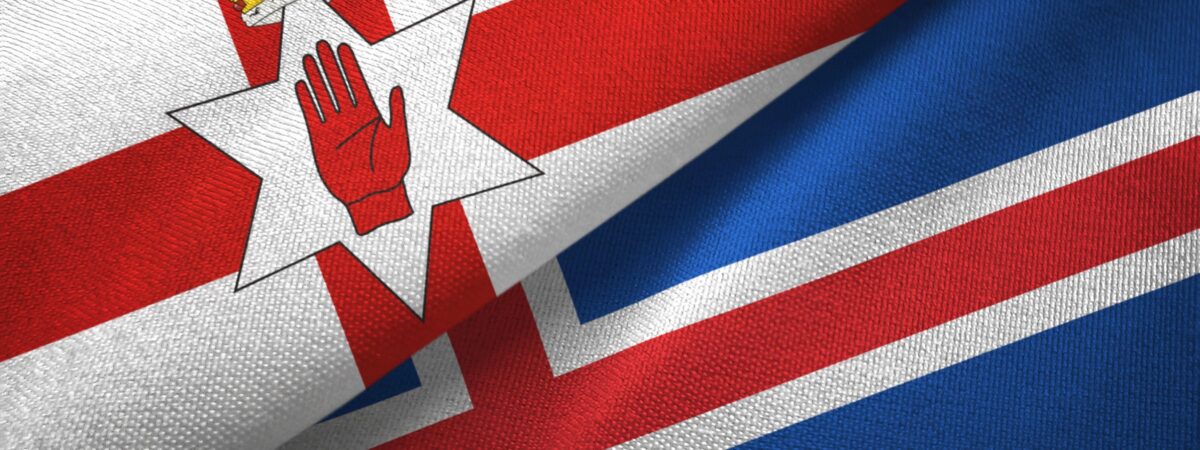
The media often tend to simplify the discourse when it comes to describing the conflict in Northern Ireland. Indeed, many journalists reduced the conflict to a simple “war of religion”, pitting Catholics against Protestants. A rather easy shortcut, far from reality, and one that can unfortunately quickly lead us astray. To set the record straight, here’s a quick rundown of what you need to know…
It’s been going on for centuries: for all of its history, England has had a constant claim on Irish territory. It all began with the Anglo-Norman invasions in the 12th century, when they landed on the island of Ireland with one objective: to plunder and then seize Irish lands.
A situation that would endure over the centuries: the British Empire gradually imposed its domination over Ireland, going so far as to consider the Irish as an inferior and docile population. Siege after siege, battle after battle, armed conflict after armed conflict. Unfortunately, the Irish are not sufficiently numerous or equipped to cope.
Then came the time of England’s conversion to Protestantism. Henry VIII renounced the Catholic Church and embraced the Protestant religion. All Britons are invited to convert… including the Irish, who are deeply Catholic, but the vast majority refuse to give in to this request.
It is this religious difference, which has endured to the present day, that is frequently used by the media to explain the conflict in Northern Ireland… A more than risky shortcut…
Unfortunately, the conflict was to last for many centuries. To consolidate its presence in Ireland, England sent many wealthy British landowners to Ulster (now Northern Ireland). From there, the British offer work and pay to the local Irish.
A situation that will strongly anchor British settlement in Northern Ireland.
The Great Famine of 1845-1848 literally decimated the country. Ireland loses over 25% of its population to late blight, a parasite that destroys potato crops. During this period, England used Ireland as a veritable food basket: it grew crops, raised livestock and exported the majority of foodstuffs to England… depriving the Irish of all sustenance… A situation that is helping to fuel Irish anger and hatred of the British.
In the 20th century, the Irish attempted to rebel with the famous Easter Rising of 1916. They then attempted to retake Dublin and declare the creation of the Republic of Ireland… in vain. Many rebel leaders were shot in Kilmainham Gaol prison as an example…
However, this failure gave new impetus to the struggle, and plunged Ireland into a violent war of independence (1919-1921). This led to an agreement with the British: England ceded the Republic of Ireland to the Irish, but kept Ulster (Northern Ireland) under its rule.
An agreement that will deeply divide the Irish, and lead to civil war.
Northern Ireland therefore remains the property of the United Kingdom… which is far from satisfying the Northern Irish in favor of British withdrawal.
From 1969 onwards, there were two distinct camps:
This is where terms become important… and where we must be careful not to make any hazardous shortcuts. Here’s what’s behind all the names. We’re talking about several opposition statuses here:
| Membership | Political ideology | Generic name for militias paramilitary |
Religious affiliation |
|---|---|---|---|
| Irish | Nationalist | Républicain | Catholic |
| English | Unionist | Loyalist | Protestant |
This makes it possible to contrast :
All these terms are community markers, making it easier to identify the nature of the conflict in Northern Ireland… And these markers are ideological, political and religious.
But beware: they can mix with each other, making the conflict even more complex…
So it’s possible to observe crossovers: Loyalist Irish, like Republican British… Admittedly, the latter represent a minority, but it’s important to understand that these labels are far from binary and Manichean.
Hence the importance of never simplifying the conflict in Northern Ireland by talking about a religious war. The population clashes along communal and ideological lines, with some in favor of a reunited, republican Ireland, while others aspire to a Northern Ireland still under the British monarchy.
The whole thing is peppered with religious statements… But religion is just one more marker in the conflict.
Hence the importance of saying it: the conflict in Northern Ireland is not a religious war…